


One time "Sweater Girl" Lana Turner led a tempestuous life filled as much with torment and heartache as it was with glamour and romance.
She Will Be Preserved In Memory As She Was On celluloid: a platinum archetype of the silky-voiced siren, a luminous sex goddess whose looks could melt a monk's resolve. The Sweater Girl, they called her. In fact, Lana Turner spent four decades making 54 films, playing every variety of girl-good, bad, sometimes heartless, but never less than glamorous. Even off screen, she looked every inch the movie diva. "She never appeared in public," recalls Van Johnson, her costar in 1945's Weekend at the Waldorf, "unless she was beautifully coiffed and dressed exquisitely."
And yet "she never played The Star," says Hope Lange, who was a 19-year-old ingénue when she met Turner, then 36, on the set of 1957's Peyton Place. "She had no sense of self-importance. There wasn't an ounce of condescension to her." Despite her indelible portrayal of the icy adulteress in 1946 The Postman Always Rings Twice, "she was the opposite of her hard-boiled image," Says Terri Garr, who in 1980 worked with Turner on her last film, the never-released Witches' Brew. "She was very sweet; a gracious, genteel, lovely woman."
And surprisingly shy. Publicist John Springer recalls how, just before Turner was scheduled to reminisce about her career in front of an audience at New York City's Town Hall in 1975, "we literally had to push her onstage. At first she was trembling and barely able to speak, but the audience absolutely adored her. By the end, "adds Springer, "she was as bright and funny as could be."
Her life, however, was filled with sadness and pain. She had seven failed marriages, three miscarriages, two abortions and a suicide attempt. More vividly remembered than any of her movies perhaps, is the great scandal in which she played a leading role. In 1958, the actress's 14 year old daughter, Cheryl, fatally stabbed Turner's gangster boyfriend, Johnny Stompanato, in Turner's Beverly Hills home.
Lana somehow managed to survive it all. What finished her finally, was throat cancer; a heavy smoker, she died on June 29 at aged 74 in her two bedroom condo in L.A. with her maid of forty-four years Carmen Cruz by her side. Eve since her diagnosis in 1992, Turner had lived reclusively, leaving her high-rise only for her radiation treatments. Until the end, she kept up her facials and manicures and insisted that a hairdresser come twice a week. But there had been few public sightings. As one recent biographer quotes her, "I want my fans to remember me as I was."
But who was that, really? She was born Julia Jean Turner on February 8, 1921 in the mining town of Wallace Idaho, the daughter of Mildred Frances Cowan, who at 15 had eloped with 24 year-old John Virgil, a gambler and bootlegger. When Julia was 9, Virgil was murdered after a big win in a crap game. "The shock I suffered then may be a valid excuse for me now," she said many years later. "It may explain things I myself do not understood."
In 1935, when Julia was 14, she and her mother moved to L.A. (Mildred's respiratory problems mandated the shift to a drier climate.) A year later, Julia, then a student at Hollywood High School, decided to cut classes one day and dashed across the street to grab a coke at the Top Hat Cafe-not Schwab's Drugstore, as Hollywood legend has it. She was spotted by Billy Wilkerson, the influential publisher of the Hollywood Reporter. Wilkerson introduced her to Zeppo Marx (of Marx Brothers fame), who was running his own casting agency. Zeppo, in turn, sent her to director Mervyn LeRoy, who had been looking for a special girl-someone with box sex appeal and innocence, he said- to cast in a thriller called They Won't Forget. No one who saw it did.
The sight of the voluptuous 15-year-old in a tight skirt and clingy knits drew so many wolf whistles at a screening that an embarrassed Turner and her mortified mother slunk outside to a waiting taxi. (Turner was proud, however, of her new screen name-Lana-which according to her 1982 autobiography, she dreamed up herself after rejecting LeRoy's choices: Leonore or Lurlene.)
While some critics belittled Turner's talent, all agreed on one thing. "In any posture," said TIME, "Lana suggests she looking up from a pillow."
For a woman who made a living promising carnal bliss, "sex was never important to me," she wrote in her memoirs. The preliminaries though, were another matter. From her earliest days as a $100-per-week MGM contract player, she was known as Hollywood's Nightclub Queen and partied until dawn with escorts including Robert Stack and Fernando Lamas at Ciro's and the Trocadero. Mickey Rooney, who had starred with Turner in 1938's Love Finds Andy Hardy, claimed her as conquest. Later, armies of men of men would shower her with lavish gifts. But the man she called "the great love of her life" was Tyrone Power, who romanced her in the late 1940's. However they never wed.
Other suitors did become husbands. Turner tied the knot 7 times in 29 years. Her first marriage, to bandleader Artie Shaw in 1940, lasted less than six months. In 1942 she wed Stephan Crane, a gambler turned restaurateur-only to learn five months later, that he was not yet divorced from his first wife. He and Turner wed legally in 1943, five months before their only child, Cheryl Christina Crane was born. A year later though, Lana sued for divorce. In 1948, balding, overweight multimillionaire Henry J. (Bob) Topping finally won her over when he plopped a 15-carat engagement ring in her martini. But his alcoholism and philandering became too much to bear: She slashed her wrist in 1951 after suing him for divorce. Husband number 4, onetime Tarzan Lex Barker, sexually abused 10-year-old Cheryl. When Turner found out about it in 1957, she gave him 20 minutes to clear out. (In 1973, when Barker dropped dead of a heart attack on a Manhattan street, she dryly inquired, "What took him so long?") In her 1982 memoir, she reflected, "Somewhere there was a pattern, something in me that made me choose takers over and over again."
But none of Lana's romances was a bigger train wreck than her fling with Johnny Stompanato, a minor hood and crony of gangster Mickey Cohen. On Good Friday, April 4, 1958, Cheryl overheard Stompanato threatening to kill her mother during a domestic dispute. The girl grabbed an eight-inch kitchen knife and flung open the door to Turner's room. "I thought she hit him in the stomach," Lana later testified. "They came together and then they parted. I never saw the blade." His kidney and aorta punctured, Stompanato choked, gurgled and died. For days, gawkers cruised past Turner's lavish Beverly Hills Home. District Attorney William B. McKesson declined to charge Cheryl for the crime, noting that she had never had a true home "either with her mother or father." Although Lana retained legal custody, a court ordered Cheryl to live with her grandmother Mildred. But Cheryl continued to have emotional problems, and at 17 she began a 10-month stay at a mental hospital in Hartford, Connecticut. Now a successful business woman, Cheryl reconciled with her mother in 1981. "Our old strained relationship began to turn into one of friendship and understanding," Cheryl wrote in her 1988 memoir, Detour: A Hollywood Story.
Ironically, Lana's biggest hit, Ross Hunter's Imitation of Life (1959), tells the story of an actress who sacrifices her daughter's affection for her career. The movie made more money for Universal than any previous film in the studio's history.
But that and Madame X in 1966 were among Turner's last career high points. In the 70's she toured briefly with several stage productions, played haughty Jacqueline Perrault in the CBS prime time serial Falcon Crest and even touted a chain of Lana Turner Mini spas.
In 1983 she officially retired and lived quietly for the next nine years. Then in1992, word began to circulate that she was undergoing radiation treatments for throat cancer that had spread to her jaw and her lungs. True to form, on her birthday two years ago she told friends-in a hoarse whisper-that she was "completely recovered." It was a final fitting performance from the redoubtable star. For Lana Turner in the words of her former manager, Taylor Pero, lived by only three precepts: Image before truth, facade rather than fact, and pride over all."
And yet "she never played The Star," says Hope Lange, who was a 19-year-old ingénue when she met Turner, then 36, on the set of 1957's Peyton Place. "She had no sense of self-importance. There wasn't an ounce of condescension to her." Despite her indelible portrayal of the icy adulteress in 1946 The Postman Always Rings Twice, "she was the opposite of her hard-boiled image," Says Terri Garr, who in 1980 worked with Turner on her last film, the never-released Witches' Brew. "She was very sweet; a gracious, genteel, lovely woman."
And surprisingly shy. Publicist John Springer recalls how, just before Turner was scheduled to reminisce about her career in front of an audience at New York City's Town Hall in 1975, "we literally had to push her onstage. At first she was trembling and barely able to speak, but the audience absolutely adored her. By the end, "adds Springer, "she was as bright and funny as could be."
Her life, however, was filled with sadness and pain. She had seven failed marriages, three miscarriages, two abortions and a suicide attempt. More vividly remembered than any of her movies perhaps, is the great scandal in which she played a leading role. In 1958, the actress's 14 year old daughter, Cheryl, fatally stabbed Turner's gangster boyfriend, Johnny Stompanato, in Turner's Beverly Hills home.
Lana somehow managed to survive it all. What finished her finally, was throat cancer; a heavy smoker, she died on June 29 at aged 74 in her two bedroom condo in L.A. with her maid of forty-four years Carmen Cruz by her side. Eve since her diagnosis in 1992, Turner had lived reclusively, leaving her high-rise only for her radiation treatments. Until the end, she kept up her facials and manicures and insisted that a hairdresser come twice a week. But there had been few public sightings. As one recent biographer quotes her, "I want my fans to remember me as I was."
But who was that, really? She was born Julia Jean Turner on February 8, 1921 in the mining town of Wallace Idaho, the daughter of Mildred Frances Cowan, who at 15 had eloped with 24 year-old John Virgil, a gambler and bootlegger. When Julia was 9, Virgil was murdered after a big win in a crap game. "The shock I suffered then may be a valid excuse for me now," she said many years later. "It may explain things I myself do not understood."
In 1935, when Julia was 14, she and her mother moved to L.A. (Mildred's respiratory problems mandated the shift to a drier climate.) A year later, Julia, then a student at Hollywood High School, decided to cut classes one day and dashed across the street to grab a coke at the Top Hat Cafe-not Schwab's Drugstore, as Hollywood legend has it. She was spotted by Billy Wilkerson, the influential publisher of the Hollywood Reporter. Wilkerson introduced her to Zeppo Marx (of Marx Brothers fame), who was running his own casting agency. Zeppo, in turn, sent her to director Mervyn LeRoy, who had been looking for a special girl-someone with box sex appeal and innocence, he said- to cast in a thriller called They Won't Forget. No one who saw it did.
The sight of the voluptuous 15-year-old in a tight skirt and clingy knits drew so many wolf whistles at a screening that an embarrassed Turner and her mortified mother slunk outside to a waiting taxi. (Turner was proud, however, of her new screen name-Lana-which according to her 1982 autobiography, she dreamed up herself after rejecting LeRoy's choices: Leonore or Lurlene.)
While some critics belittled Turner's talent, all agreed on one thing. "In any posture," said TIME, "Lana suggests she looking up from a pillow."
For a woman who made a living promising carnal bliss, "sex was never important to me," she wrote in her memoirs. The preliminaries though, were another matter. From her earliest days as a $100-per-week MGM contract player, she was known as Hollywood's Nightclub Queen and partied until dawn with escorts including Robert Stack and Fernando Lamas at Ciro's and the Trocadero. Mickey Rooney, who had starred with Turner in 1938's Love Finds Andy Hardy, claimed her as conquest. Later, armies of men of men would shower her with lavish gifts. But the man she called "the great love of her life" was Tyrone Power, who romanced her in the late 1940's. However they never wed.
Other suitors did become husbands. Turner tied the knot 7 times in 29 years. Her first marriage, to bandleader Artie Shaw in 1940, lasted less than six months. In 1942 she wed Stephan Crane, a gambler turned restaurateur-only to learn five months later, that he was not yet divorced from his first wife. He and Turner wed legally in 1943, five months before their only child, Cheryl Christina Crane was born. A year later though, Lana sued for divorce. In 1948, balding, overweight multimillionaire Henry J. (Bob) Topping finally won her over when he plopped a 15-carat engagement ring in her martini. But his alcoholism and philandering became too much to bear: She slashed her wrist in 1951 after suing him for divorce. Husband number 4, onetime Tarzan Lex Barker, sexually abused 10-year-old Cheryl. When Turner found out about it in 1957, she gave him 20 minutes to clear out. (In 1973, when Barker dropped dead of a heart attack on a Manhattan street, she dryly inquired, "What took him so long?") In her 1982 memoir, she reflected, "Somewhere there was a pattern, something in me that made me choose takers over and over again."
But none of Lana's romances was a bigger train wreck than her fling with Johnny Stompanato, a minor hood and crony of gangster Mickey Cohen. On Good Friday, April 4, 1958, Cheryl overheard Stompanato threatening to kill her mother during a domestic dispute. The girl grabbed an eight-inch kitchen knife and flung open the door to Turner's room. "I thought she hit him in the stomach," Lana later testified. "They came together and then they parted. I never saw the blade." His kidney and aorta punctured, Stompanato choked, gurgled and died. For days, gawkers cruised past Turner's lavish Beverly Hills Home. District Attorney William B. McKesson declined to charge Cheryl for the crime, noting that she had never had a true home "either with her mother or father." Although Lana retained legal custody, a court ordered Cheryl to live with her grandmother Mildred. But Cheryl continued to have emotional problems, and at 17 she began a 10-month stay at a mental hospital in Hartford, Connecticut. Now a successful business woman, Cheryl reconciled with her mother in 1981. "Our old strained relationship began to turn into one of friendship and understanding," Cheryl wrote in her 1988 memoir, Detour: A Hollywood Story.
Ironically, Lana's biggest hit, Ross Hunter's Imitation of Life (1959), tells the story of an actress who sacrifices her daughter's affection for her career. The movie made more money for Universal than any previous film in the studio's history.
But that and Madame X in 1966 were among Turner's last career high points. In the 70's she toured briefly with several stage productions, played haughty Jacqueline Perrault in the CBS prime time serial Falcon Crest and even touted a chain of Lana Turner Mini spas.
In 1983 she officially retired and lived quietly for the next nine years. Then in1992, word began to circulate that she was undergoing radiation treatments for throat cancer that had spread to her jaw and her lungs. True to form, on her birthday two years ago she told friends-in a hoarse whisper-that she was "completely recovered." It was a final fitting performance from the redoubtable star. For Lana Turner in the words of her former manager, Taylor Pero, lived by only three precepts: Image before truth, facade rather than fact, and pride over all."







































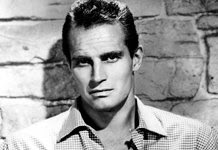

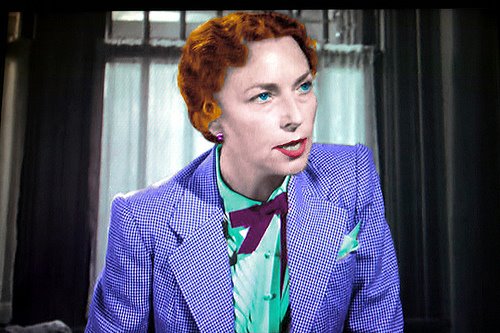



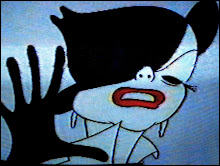.jpg)

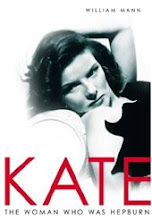


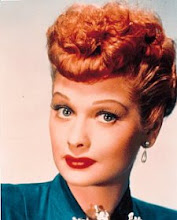








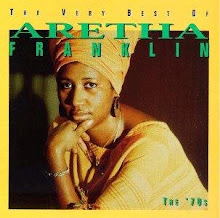
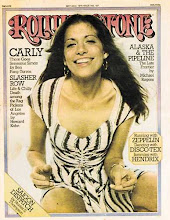



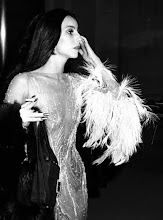




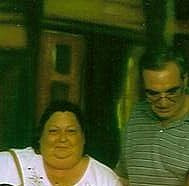
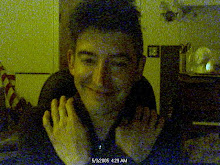





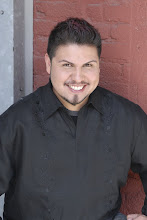



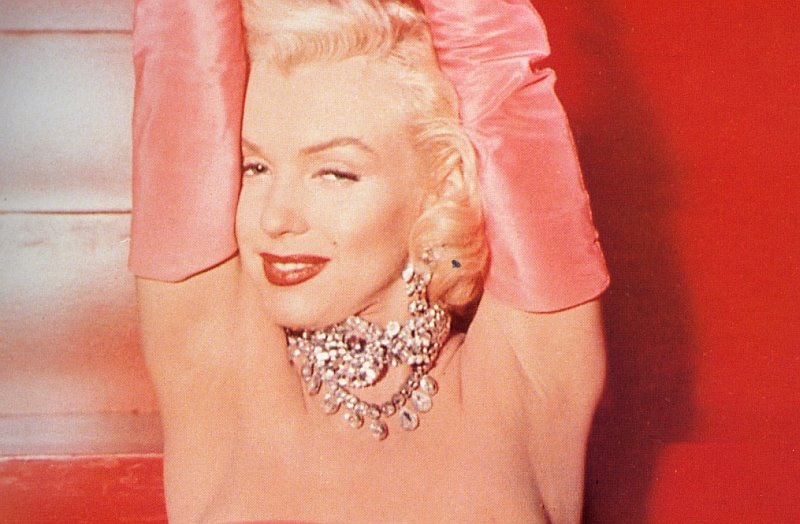







No comments:
Post a Comment